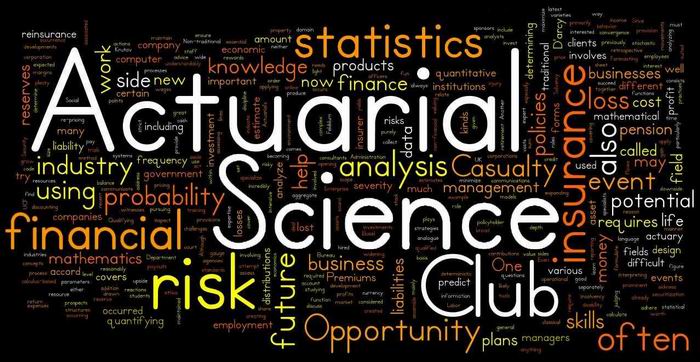Actuaries are highly sought-after professionals in the finance and insurance industries. They use mathematics, statistics, and financial theory to assess the risk of potential events, and they help businesses and clients develop policies that minimize the cost of that risk. Becoming a successful actuary requires a unique set of skills, including strong analytical and problem-solving abilities, as well as a deep understanding of mathematics, statistics, and finance. This guide provides an overview of the essential skills needed to become a successful actuary, including the qualifications and certifications required to practice in the field.
Understanding the Role of an Actuary
An actuary is a professional who specializes in the assessment and management of financial risk. They use mathematics, statistics, and financial theory to analyze the likelihood of future events, and to help organizations make informed decisions about their finances.
Actuaries are employed by insurance companies, pension funds, banks, and other financial institutions. They are responsible for assessing the risk of various financial products, such as life insurance policies, annuities, and pension plans. They also analyze the financial impact of potential changes in the market, such as changes in interest rates or the introduction of new products.
Actuaries use their knowledge of mathematics, statistics, and financial theory to develop models that can be used to predict the likelihood of future events. They use these models to determine the probability of an event occurring, and to estimate the financial impact of such an event.
Actuaries also use their knowledge of financial theory to advise organizations on how to manage their finances. They may recommend strategies for minimizing risk, such as diversifying investments or hedging against potential losses. They may also advise on how to maximize returns, such as investing in high-yield investments or selecting the right mix of investments.
Actuaries must be highly skilled in mathematics, statistics, and financial theory. They must also be able to think logically and analytically, and be able to communicate their findings effectively. They must also be able to work independently and as part of a team.
Actuaries play an important role in helping organizations make informed decisions about their finances. They use their knowledge of mathematics, statistics, and financial theory to assess the risk of various financial products, and to advise organizations on how to manage their finances. They must be highly skilled in mathematics, statistics, and financial theory, and be able to think logically and analytically.
Developing Strong Analytical and Mathematical Skills
Developing strong analytical and mathematical skills is essential for success in today’s world. Whether you are a student, a professional, or a businessperson, the ability to think critically and solve complex problems is a valuable asset.
Analytical skills involve the ability to break down complex problems into smaller, more manageable pieces. This involves the use of logic and reasoning to draw conclusions and make decisions. It also involves the ability to identify patterns and trends in data and to interpret information accurately.
Mathematical skills involve the ability to use numbers to solve problems. This includes the ability to calculate, analyze, and interpret data. It also involves the ability to use mathematical formulas and equations to solve problems.
Developing strong analytical and mathematical skills requires practice and dedication. It is important to stay organized and to keep track of your progress. You should also strive to stay up to date on the latest developments in the field.
One way to develop your analytical and mathematical skills is to take classes in the subject. Many universities and colleges offer courses in mathematics, statistics, and data analysis. Taking these classes can help you gain a better understanding of the subject and hone your skills.
Another way to develop your analytical and mathematical skills is to practice. You can practice solving problems and analyzing data on your own or with a partner. You can also practice using mathematical formulas and equations to solve problems.
Finally, you can use online resources to develop your analytical and mathematical skills. There are many websites and apps that offer tutorials and practice problems. These can help you gain a better understanding of the subject and hone your skills.
Developing strong analytical and mathematical skills is essential for success in today’s world. With practice and dedication, you can become an expert in the field and use your skills to solve complex problems.
Gaining Knowledge of Insurance and Risk Management
Gaining knowledge of insurance and risk management is essential for any business, as it helps protect against financial losses. Insurance and risk management are two closely related concepts, and understanding them is important for any business.
Insurance is a form of risk management that provides protection against financial losses. It is a contract between an insurer and an insured, where the insurer agrees to pay for any losses that the insured may incur due to certain events. The insured pays a premium to the insurer in exchange for this protection. There are various types of insurance, such as property insurance, liability insurance, and health insurance.
Risk management is the process of identifying, assessing, and controlling risks. It involves analyzing the potential risks that a business may face and developing strategies to minimize or eliminate those risks. Risk management also involves monitoring and evaluating the effectiveness of the strategies implemented.
Gaining knowledge of insurance and risk management is important for any business, as it helps protect against financial losses. Insurance provides protection against unexpected losses, while risk management helps identify and mitigate potential risks. By understanding these concepts, businesses can ensure that they are adequately protected against financial losses.
Gaining knowledge of insurance and risk management can be done through formal education, such as a degree in risk management or insurance, or through on-the-job training. It is also important to stay up to date on changes in the industry, as regulations and policies can change over time.
Gaining knowledge of insurance and risk management is essential for any business, as it helps protect against financial losses. Understanding these concepts can help businesses ensure that they are adequately protected against unexpected losses.
Developing Financial and Business Acumen
Developing financial and business acumen is an essential skill for any business professional. It involves understanding the fundamentals of financial management, business strategy, and economic trends. Financial and business acumen enables individuals to make informed decisions and better manage their resources.
Financial acumen involves having a strong understanding of financial principles and concepts, such as accounting, budgeting, cash flow, financial statements, and financial analysis. It also requires the ability to interpret financial data and make sound decisions based on the information. Financial acumen is important for making decisions about investments, capital expenditures, and other financial matters.
Business acumen involves understanding the principles of business strategy, including market analysis, competitive analysis, and product development. It also involves having an understanding of the business environment, including the legal and regulatory environment, the competitive landscape, and the economic environment. Business acumen is important for making decisions about the direction of the business, such as whether to enter new markets, develop new products, or pursue new strategies.
Having both financial and business acumen is essential for any business professional. It enables individuals to make informed decisions and better manage their resources. It also helps them to understand the implications of their decisions and to anticipate the potential outcomes. Developing financial and business acumen requires a combination of knowledge, experience, and analytical skills. It is an ongoing process that requires continual learning and practice.
Learning to Utilize Technology and Software for Actuarial Work
Technology and software have become essential tools for actuaries in recent years. As the profession has evolved, actuaries have had to learn to use technology and software to keep up with the changing demands of the industry.
Actuaries use technology and software to perform a variety of tasks, including risk assessment, data analysis, and financial modeling. They use software to calculate premiums, analyze trends, and forecast future outcomes. They also use technology to monitor and manage their portfolios, as well as to track and analyze customer data.
Technology and software can also help actuaries stay up to date on the latest industry trends and regulations. By utilizing the latest software and technology, actuaries can quickly and accurately assess risk and make informed decisions. This helps them to stay ahead of the competition and ensure that their clients are receiving the best possible advice.
Actuaries must also be able to use technology and software to communicate effectively with their clients. This includes being able to use video conferencing, email, and other forms of communication to keep clients informed of their progress and to provide them with the information they need to make informed decisions.
Finally, actuaries must be able to use technology and software to manage their own workloads. This includes being able to use project management software to keep track of deadlines and tasks, as well as being able to use analytics software to analyze data and make decisions.
Learning to utilize technology and software for actuarial work is an important part of being an effective actuarial professional. By understanding the latest technology and software, actuaries can stay ahead of the competition and provide their clients with the best possible advice.
In conclusion, becoming a successful actuary requires a wide range of essential skills. These include strong analytical and problem-solving abilities, knowledge of mathematics and statistics, excellent communication and interpersonal skills, and a good understanding of the insurance and financial industries. With the right combination of these skills, and a dedication to continuing education, anyone can become a successful actuary.




